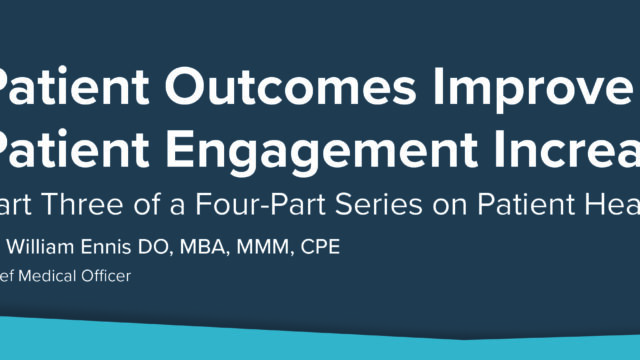Using AI and Predictive Modeling to Assess Patient Risk During COVID-19
Written by Mary Sheridan, PhD, Healogics Senior Manager of Advanced Analytics.

As the largest provider of advanced wound care in the US, Healogics has the largest and most comprehensive database of wound care-specific data. This allows us to be at the forefront of evidence-based wound care to continually improve care and create the best healing outcomes for our patients. Utilizing this large asset of wound care data, we partnered with NLP Logix, a Machine Learning solutions company, to create a comprehensive, wound-healing model. This model utilizes over 100 data points about the patient, wound and demographics of the local population. It was designed to predict the likelihood that a wound would heal and whether a patient would successfully complete treatment. As part of this model, we can predict the patient’s risk of being medically transferred to inpatient care.
In light of the COVID-19 pandemic, we decided to adjust and implement this existing model to help identify patients whom in-clinic wound care would be essential to preventing inpatient hospitalization. The model outcomes were then implemented into a dashboard report so that providers can easily determine which of their current patients are at high, medium or low-risk for hospitalization if their wound condition did not improve. This risk score, in conjunction with additional patient data, such as how long they’ve been in treatment, their wound characteristics and other wounds they may have, allows providers to determine the best course of care for each patient during this unprecedented time. Providers and staff can easily identify those at the highest risk and ensure they are seen in the Wound Care Center to prevent a worsening in their wound condition that could lead to hospitalization. Additionally, we can identify those who are at lower risk and may be good candidates for our telehealth solutions to ensure that they remain on the path to healing while staying home.
We were very excited to be able to quickly implement a predictive model-solution that utilizes our comprehensive wound database, and so far, we’ve received positive feedback. Our providers and Center staff have expressed appreciation to have this additional insight to help them with their patient care decisions. Based on the success of this model, we plan to further leverage our robust database and implement additional predictive solutions to ensure our patients receive the best wound care and healing outcomes.
For more information about this project, the full video interview with Accountable Health and NLP Logix can be accessed here.



